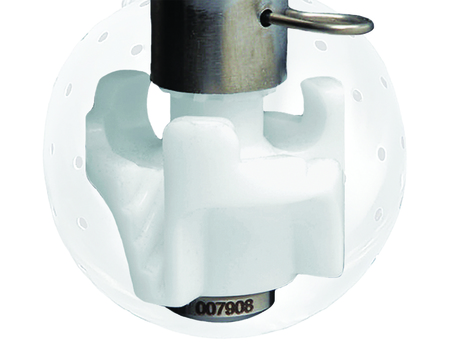Safer, faster CIP without spray balls

Spray Nozzle Engineering’s quest to develop more efficient CIP tank cleaning technology has led to its most recent innovation: spray ball replacement.
Spray balls were originally designed as a chemical distributing device, relying on the amount of chemical — rather than the impact of the spray — to clean. Today, with rising chemical and water treatment costs and discharge restrictions, quicker CIP cycles are required, which use impact cleaning with fewer chemicals.
Conventional spray balls can struggle to achieve this. The design of many spray balls means that foreign material that enters the ball may not be able to escape, acting like a sieve until it blocks. This can lead to batch wastage, defective tank cleaning and increased bacteria counts.
Spray Nozzle Engineering has engineered the M-Series tank cleaning system as a direct replacement for spray balls, with rotational impact technology and self-cleaning features. The self-cleaning, fluid-driven design means that contaminants can be flushed away. In contrast to conventional spray balls, the series uses the same fluid that rotates the head to continually flush the internals.
Fast CIP cycle times are achieved via the Flow Step rotor technology. This channels fluid into impact droplets at all pressure ranges, preventing the low impact and misting that can reduce cleaning effectiveness and increase cleaning time. Flow Step eliminates the need for ball bearings or motor drives.
The M-Series CIP system, incorporating FDA-approved construction, can be used in existing or new plant or transport vehicles.
Antimicrobial resistance in Aussie raw retail meats remains low, FSANZ survey finds
FSANZ has released its findings from a national survey of antimicrobial resistance in more than...
Heat and Control brings coffee and tea processing solutions to MICE 2026
Heat and Control will showcase its latest coffee and tea processing, packaging and inspection...
AI-based hyperspectral camera to enable more food applications
A team of experts is developing a compact hyperspectral camera that uses AI to perform complex...










